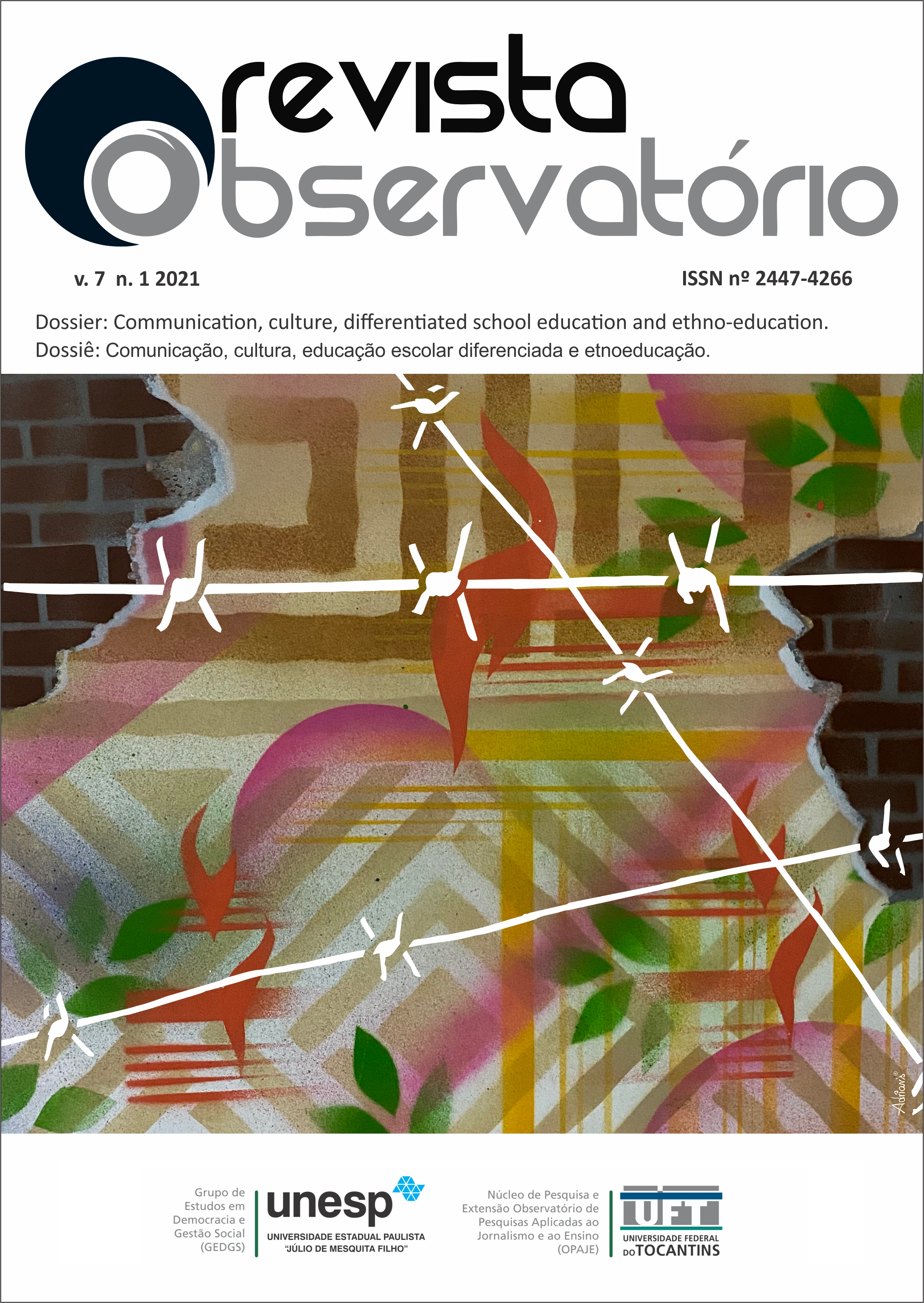SOCIAL REPRESENTATIONS: Moçambican ethnicities
DOI:
https://doi.org/10.20873/uft.2447-4266.2021v7n1a7ptKeywords:
Representations, Ethnicities, Macuas, TsongasAbstract
This article aims to bring a reflection on the theory of Social Representations from the perspective of Social Psychology. From the bibliographic review, an analogy is made between the theories of social representations, to a concrete society, in this case, the Mozambican society. Social representations have been a topic widely discussed by several and categorized authors, many of them addressing the relationship between cognition-knowledge, individual and society. For this purpose, three Mozambican ethnicities were analyzed, namely, Macuas-Lomués, Ndaus and Tsongas, in which, based on the bibliographic verification of their cultures, beliefs and values, a real analogy can be drawn between the theories on social and cultural representations. the behaviors of these ethnic groups, which make clear the different social representations in the different regions that form the country called Mozambique.The basis of the research was the bibliographic review, both to address the theoretical supports, as well as to address the Mozambican reality.
Downloads
References
Bandura A, A. (1986), Social Foundations of Thought and Action, Englewood Cliffs,
Printece Hall.
Coelho, M. (2009), O Mundo natural dos tsongas no discurso de Henri Junod.em
https://anpuh.org.br/uploads/anaissimposios/pdf/201901/1548772005_6012ea47f989cf3836fa024222b5618c.pdf, assessado aos 01/05/2020.
Damatta, R. (1986). Exploração: um ensaio de sociologia interpretativa. Rio de
Janeiro: Rocco.
Florêncio, F. (2002) Identidade Étnica e Práticas Políticas entre os vaNdau de
Moçambique. Cadernos de Estudos Africanos, nº 3, p. 39-63, Jul./Dez.
FlorêncioL, F.(2005) Ao Encontro dos Mambos – autoridades tradicionais vaNdau
e Estado em Moçambique. Lisboa: ICS, 298 p.
Fonseca L., Tristoni L.H. (2013), Os desafios que o povo makhua encontra para
manter sua cultura diante do plurilinguismo na região de cabo delgado, Mçambique, revista Travessia, Maputo.
Fuller, S., 1988. Social Epistemology. Bloomington and Indianapolis: Indiana
University Press.
Guthrie, M. (1948) The classification of the bantu languages. Tese. (Doutorado em
Linguística). University of London. London: IALU/ IOUP.
Honigmann, J. (1964) “Tribe”, A dictionary of the social sciences, Glencoe, Free
press.
James, W. (1890), The Principies of Psychology, Nova Iorque, Holt.
Jodelet, D. (1989). Les Représentations sociales: un domaine en expantion. Em D.
Jodelet (org.), Les représentations Sociales. Paris: Press Universitary de France.
Jodelet, D.1985), La representación social: Fenómenos, concepto y teoría. In:
Psicologia.
Social (S. Moscovici, org.), pp. 469-494, Barcelona: Paídos.
JodeletT, D. (2001). Representações sociais: um domínio em expansão.In D. Jodelet
(Ed.), As representações sociais (pp. 17-44). Rio de Janeiro: UERJ.
Junod, A. (1996), Usos e costumes dos Bantu. Tomo I. Maputo, Arquivo Histórico
de Moçambique.
LangaA, L.(2012), Cultura do povo Moçambicano, zona sul em
http://liandralanga.blogspot.com/2012/01/cultura-do-povo-mocambicano-zona-sul.html,assessado aos 01/05/2020.
Malua, R. Maugente, J. Notice, T. Eeneio, S. Manuel, L. Muadissinar, D. (2014).
Etnologia dos Povos Africanos-Ndau. (em https://malua7rcbm.blogs.sapo.mz/etnologia-dos-povos-africanos-ndau-1656).
Martinez L. (1989) O povo macua e sua cultura, Moç. Press, Maputo Medeiros, E.
(1997) A cultura Macua em http://culturamocambicana.blogspot.com/2017/07/etnia-macua.
Meque, C.(2018) Globalização e sua influência nos elementos da cultura
ndau, análise do caso da dança Xiquema em https://wwwresearchgate.net/publication/323638750, aos 29/04/2020.
Mercier, P. « Remarques sur la signification du ''tribalisme actuel'' en Afrique noire
», Cahiers internationaux de sociologie, (Paris, PUF), XXI, Julho‐Dezembro, 1961, p. 65.
Moscovic, S. (1978) A Repesentação Social da Psicanálise, Rio de Janeiro. Zahar
Moscovic, S. (1984). The Phenomenon of Social Representations. Em R. Farr & S. Moscovici (org.), Social Representations. Cambridge: University Press.
Ngunga, A.; Faquir A, O. (2011) Padronização da ortografia de línguas
moçambicanas: relatório do 3º seminário. Maputo: CEA/UEM, 2011.
Patrício,M.(2011) Identidade Étnica, Regional ou Transnacional? O caso Ndau, XI
congreso Luso-Africano UFBA, Bahia.
Santiago, E. (2012) A Cultura Moçambicana.
Em: https://www.infoescola.com/cultura/cultura-mocambicana/.
Spink, M. J. P.(1993) The Concept of Social Representations in Social Psychology.
Cad. Saúde Públ., Rio de Janeiro, 9 (3): 300-308, jul/sep.
Tibane, A. (2014) A Análise Sóciodiscursiva da “Saudação” do Grupo Étnico –
Linguístico Tsonga em Moçambique em https://wwwresearchgate.net/publication/305680975.
Vala, J. (1996). Representações sociais: para uma psicologia social do pensamento
social. In. Vala & M. B. Monteiro (Eds.), Psicologia social. 2ª ed (pp. 353-384). Lisboa: Calouste Gulbenkian.
Vigotsky, L. S., 1978. Mind in Society. Cambridge: Harvard University Press.
https://www.colegiomoz.blogspot.com/2018/12/dancas-tradicionais-da-zona-sul-de.html.
Downloads
Published
How to Cite
Issue
Section
License
[PT] Autores que publicam nesta revista concordam com os seguintes termos:
1. Autores mantém os direitos autorais e concedem à revista, sem pagamento, o direito de primeira publicação, com o trabalho simultaneamente licenciado sob a Creative Commons Attribution License (CC BY-NC 4.0), permitindo o compartilhamento do trabalho com reconhecimento da autoria do trabalho e publicação inicial nesta revista.
Leia todos os termos dos direitos autorais aqui.

